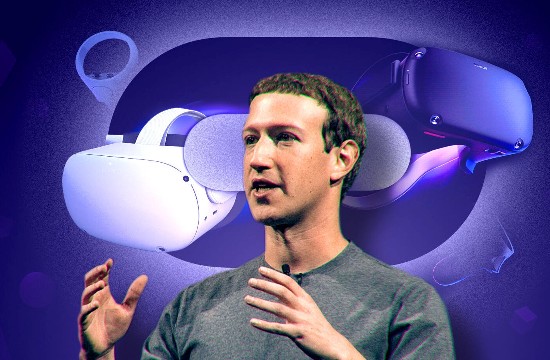When Mark Zuckerberg recently announced Facebook’s company name change to Meta, my first reaction was to laugh. The name Meta connoted the longer word metaverse, the next iteration of the Internet as seen through the eyes of techies who create for the virtual world.
This is an old idea if you are familiar with Second Life, a virtual environment that first appeared on computer screens back in 2003. I was a subscriber. I created an avatar and began exploring a virtual reality where I could interact with the avatars of others regardless of where their real corporeal selves existed. In Second Life I could fly. But I soon found myself bored as I wandered through this virtual world.
So what’s changed since then? Facebook, the social network, has decided to make the metaverse its own. Why now? Considering the social media ills that Facebook has allowed to creep into society, and in particular politics, maybe renaming the company is no more than a diversion.
The Facebook of today is closing in on 3 billion active users. That’s close to 40% of the world’s population. In addition, the company has its own virtual reality headset and two other significant social networking applications with hundreds of millions of users. Now it wants to combine these many products and services to create the new Internet where we appear as avatars while wearing Meta headsets, headphones, smart gloves, and any other paraphernalia that the company can think of developing to replace our innate senses.
To me, about to turn 73, this all sounds like an arrested adolescent’s idea of what the Internet should be. I don’t expect such a vision to come from someone like Google’s Sergey Brin, or Tesla’s Elon Musk. But from Zuckerberg, it’s no surprise. Based on his companies’ track records to date, I don’t believe he has a clue about what the future Internet should be.
I remember reading back in 2017 the Internet Society‘s ten recommendations for its future evolution. The Society pictured a future Internet that was global, open, and secure and designed with significant public input. The ten points included the following:
- Human values should drive the Internet’s technical development and use.
- Human rights should be observed online.
- Users’ interests should be first and foremost.
- It should be open and accessible to the entire global community.
- The online economy should be made to work for all equally.
- Online security should be agreed to collectively.
- Data handlers (that means you Facebook) should be held accountable for the content and behaviour of those it hosts.
- The Internet should be built using open standards and be interoperable, secure and resilient.
- It should be free of violence, hate, and harassment.
- All users should be stakeholders and participate in determining norms and practices.
That’s not Meta’s vision. Instead, Zuckerberg’s Facebook renamed Meta wants to create an Internet that is 3D, where users socialize, learn, collaborate and play in ways that go beyond what we can imagine. He wants Internet users wearing headsets, and smart glasses. He now calls his new vision of Facebook, a social technology company. But in fact, the need for more technology at a cost will make the Meta vision of the Internet less inclusive and less accessible to the global community, particularly the Developing World.
When I joined Facebook in its infancy I saw its promise. It connected me to the world in ways I had never experienced. More and more now, however, I am restricting my use. I post links to my blog on my Facebook and 21cen pages. I share climate change postings with contacts and pages focused on that issue. But as I watch the ongoing revelations of how Facebook incites controversy to get more hits, I am coming to a conclusion that I soon will dispense with it entirely.
The world and the Internet need better visionaries than a person who started a college social networking application to rate which girls were hot and which were not, and has somehow turned this into a multi-billion dollar enterprise that influences the behaviour of billions and is problematic in so many ways.









